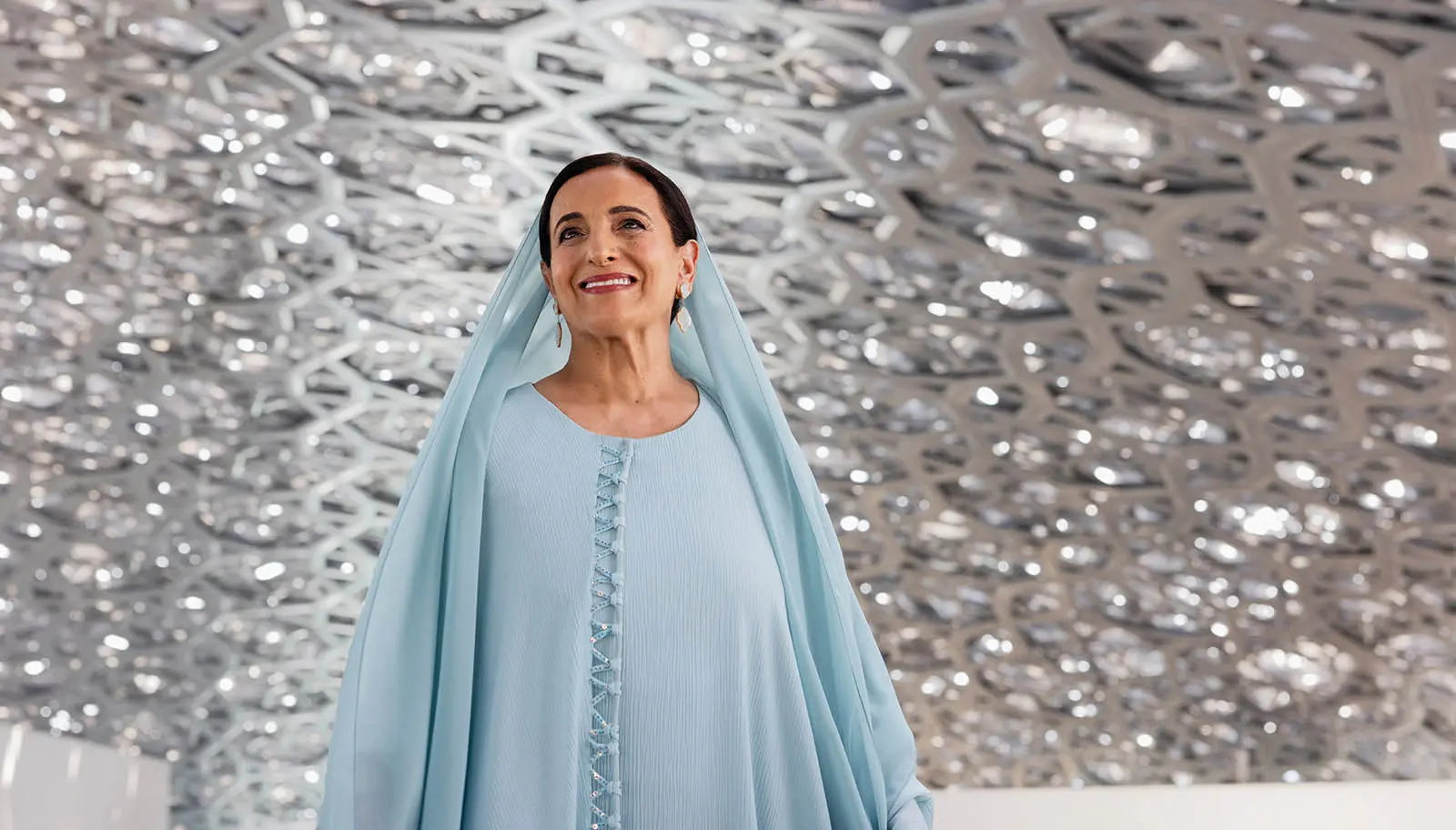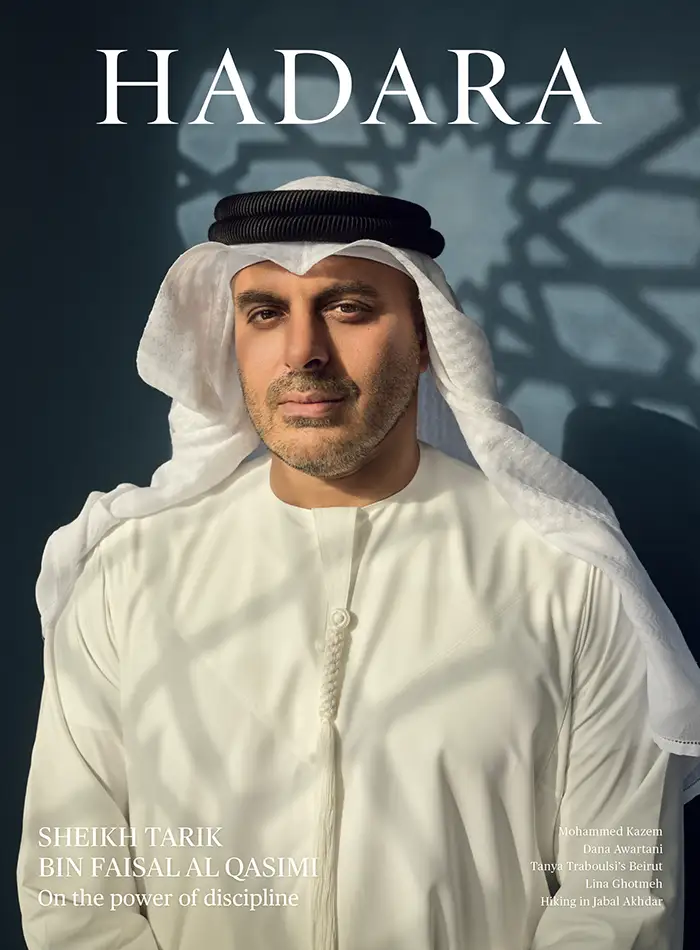Agent of change
While Her Excellency Sheikha Lubna Bint Khalid Al Qasimi has blazed trails by being the first female cabinet member in the UAE, being a tech CEO and more, she focuses her energy on helping others—especially youth—see how they can make positive change in the world.
Interview by Catherine Mazy
Photographs by Katarina Premfors
In March 2024, the United Nations ranked the United Arab Emirates
seventh best globally and first regionally in its Gender Inequality Index, a huge swing from its first showing, in 1995. Her Excellency Sheikha Lubna Bint Khalid Al Qasimi is one of the most influential people contributing to that change.
Because of her illustrious career at the head of multiple ministries in the UAE government, Sheikha Lubna is hailed as a breaker of glass ceilings, named by CEO Middle East magazine as the most powerful woman in the Arab world for six years, and by Forbes as one of the world’s most powerful women. Her list of honours is as long as her list of accomplishments. But her ambitions were never for glory, only for being the best at whatever she had set out to do.
Being called upon to lead the Ministry of Economy and Planning in 2004, the first of what would be many female government ministers, came “not by pushing hard, wanting to be a minister,” she says. “I was appointed by our leaders.” While women were making inroads in many occupations, they weren’t in government. “So [the nation’s leaders] decided, let’s put a capable woman, someone who is a no-nonsense character, a very sensible high achiever to set the path for other women to come. And sure enough, within two years there were three women ministers,” she says. The UAE today has nine.
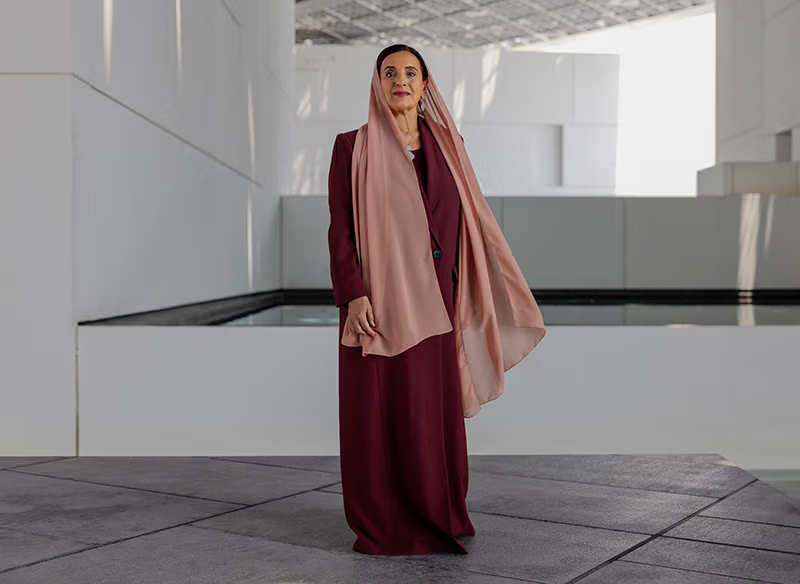
“The UAE is a tolerant society. It was not about creating tolerance. It’s about institutionalising tolerance. Respect for others, respecting religions, working together.”
Sheikha Lubna’s most difficult job was creating the Ministry of Tolerance in 2016, a first for any government and her fourth ministerial position (she was appointed Minister of Foreign Trade in 2008 and Minister of International Cooperation and Development in 2013). Home to 200 nationalities, “the UAE is a tolerant society,” she says. “It was not about creating tolerance. It’s about institutionalising tolerance. What can we do in terms of regulation, laws, content, this business of trying to route people back to understanding what societies are all about: respect for others, respecting religions, working together.”
Every ministry, she notes, is created to serve the people, the nation, by advancing such things as industry, jobs, gross domestic product. Happiness, a ministry created at the same time, and tolerance are different because they reflect values and behaviour. The ministry was born out of two things: the rise of populism around the world fomenting hatred and the observation of negative values and behaviour coming from the internet and social media.
“Today, no matter how careful parents are, kids are faced with internet peer pressure from people they don’t even know,” she says. The result was laws that criminalise hate speech or the promotion of violence or discrimination against others. “You can’t just slap somebody in the street and not expect someone to call the police,” she says. Now it’s similar for a verbal slap, whether in person or online.
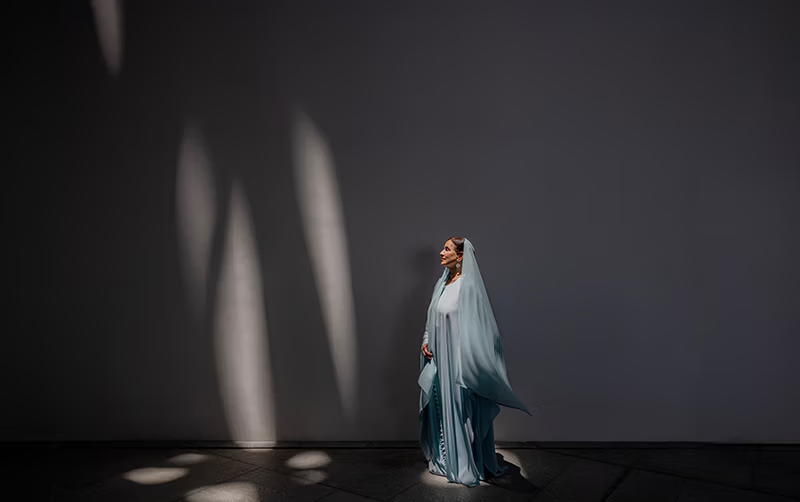
The ministry encourages the diverse mix of residents to respect and even appreciate each other’s cultures, through festivals, literature, school programmes, and more. Teaching and celebrating diversity of cultures provides a counterweight to online ugliness and makes clear society’s values and traditions. The UAE, Sheikha Lubna says, has an agenda that is visible. “If you fill young people with this, then they’re fine—because you can’t block them from any technology changes or advancements that are coming,” she says. “The challenges are borderless.”
Sheikha Lubna is anything but an anti-technology Luddite. “I love technology. I’m a computer engineer. I like programming.” She was one of the first computer engineers in the UAE in the early 1980s. Among her tech jobs were automating the Dubai Government as part of the Dubai e-Government initiative and managing information technology for Dubai Ports Authority.
“Today the UAE is one of the pioneers in driving change,” Sheikha Lubna says. “Take 5G [the latest mobile telephone standard]. The first thing the government looks at is regulation—are we keeping up or not? Technology can be abused if it isn’t regulated. This is a government that invests in people and technology. The UAE is always ahead, very advanced. It makes it difficult for us now when we go somewhere else with less-advanced technology.” Artificial intelligence, she adds, is taught in schools here. “Technology is part of our lifestyle.”
In 2000, HH Sheikh Mohammed Bin Rashid Al Maktoum, later Vice President and Prime Minister of the UAE and Ruler of Dubai, appointed Sheikha Lubna CEO of Tejari, the first business-to-business e-market in the Middle East. Then she moved on to heading the Dubai e-Government Executive Team. “I set an example not just for girls but for boys, too,” she says of being a leader in tech.
A career in technology, Sheikha Lubna says, is “a good precursor to politics”. Many of the skills are transferable: the ability to manage detail, the need to communicate clearly, the focus on improving performance. She says there is the psychology aspect of it, too: there is a sense of power to being a technologist. Others with a technology background have since been appointed to the UAE cabinet.
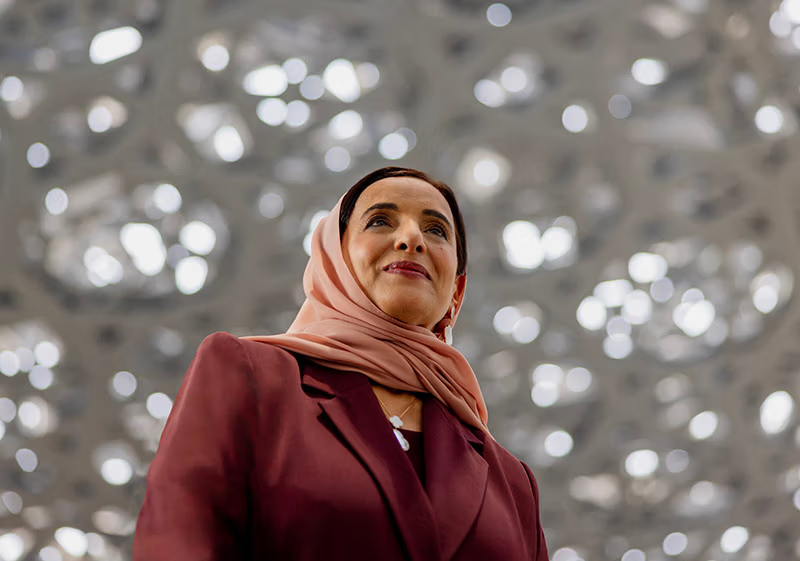
“Not knowing enough about the region, or presuming that you’re a Muslim so you must be oppressed because you have a cover on your head. All somebody has to say is, ‘That’s not for girls or for a woman,’ then I will show them they’re wrong.”
Her tech journey started when, as a high-achieving high-school
student gifted in science, her parents advised her to become a doctor. But “I said no, I don’t want to be a doctor. I love technology. I want to be a computer engineer. But there weren’t any. There weren’t computers. People didn’t even understand the word computer at that time,” she says. “I had so much passion for solutions using technology. I had a streak of stubbornness from early on. I give my family credit because they accepted my choice.”
Her parents’ generation learned the Quran and the Arabic language. “Schools came only around my eldest brother’s time, at the beginning of the 1960s,” she says. “My mother’s mandate had always been ‘get your education, your university degree, and then, if you want to, get married, or go and get a job. But you have to get your university degree. I am preparing you for a time that is not our time,’ she said.”
Sheikha Lubna went to join her brothers, who were studying in California. She got a bachelor’s degree in computer science from California State University, Chico, living not in an apartment with her brothers, who had assured their parents they would look out for her, but with an American family.
“The silver lining is that I learned so much about American culture,” she says. “It helped me a great deal in my career, especially when I used to go to the US to meet government contacts and congress. They feel like ‘you’re one of us’, and that to me is a huge compliment because it means you cross the bridge, you’re able to communicate your country’s thoughts in their way of thinking—not in your way of thinking but theirs. And it takes you to a point of persuasion that they accept your argument.”
Sheikha Lubna not only went on to earn an Executive MBA from the American University of Sharjah but also has received a fistful of honorary doctorates. She also co-authored two books, one on cyber security and one on e-commerce.
She spent four years as president of Zayed University, retiring from official work but not from activity in 2018. “Retirement is freedom,” she says. “Now we do what we want to do. I’ve had a 35-year career. There’s a new generation coming up. Opportunity should be given to them.”
If she has worked to crush stereotypes at home, she has done the same abroad. The stereotypes outside the Arab world of Arab women’s roles “reflect a lack of information,” she says. “Not knowing enough about the region, or presuming that you’re a Muslim so you must be oppressed because you have a cover on your head. All somebody has to say is, ‘That’s not for girls or for a woman,’ then I will show them they’re wrong.”
Styling by Celia-Jane Ukwenya. Makeup by Nadine Susan Elias. Styling Assistance by Maria Leontyeva. Blue abaya by Noor Al Bahrani. Red abaya by Bouguessa. Photographed at the Louvre Abu Dhabi.

